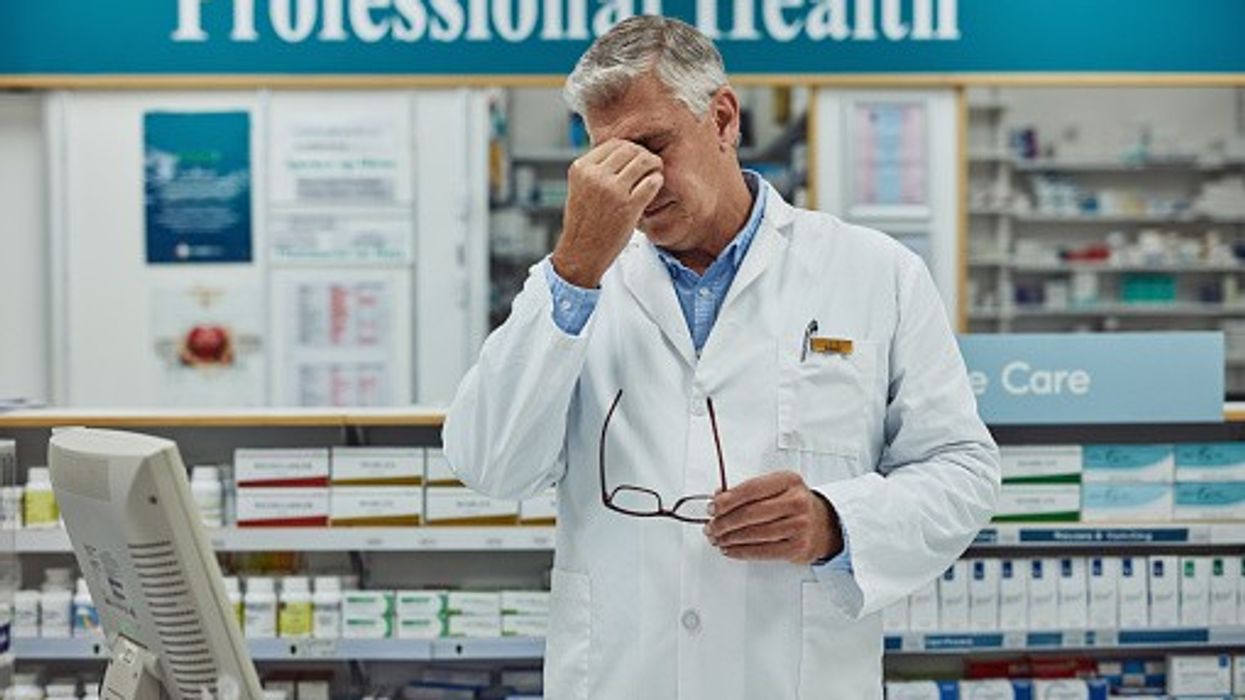The RPS/PS workforce wellbeing survey 2023 revealed that most pharmacists continue to operate under challenging conditions, with elevated levels of burnout and stress
The Royal Pharmaceutical Society’s (RPS) second roundtable on workforce wellbeing resulted in a series of collaborative actions to address pharmacy professionals' mental health and wellbeing challenges.
The roundtable brought together key stakeholders from the pharmacy sector, including organisations like the General Pharmaceutical Council (GPhC), Community Pharmacy England (CPE), the National Pharmacy Association (NPA), and the profession’s independent charity Pharmacist Support (PS).
A report detailing the outcomes of the meeting was published on Friday, highlighting the key areas of discussion and the agreed-upon actions by the participants.
During the roundtable, participants discussed the importance of understanding the workforce demographics, both nationally and locally, and using data to address wellbeing issues effectively.
They also emphasised the need for using supportive standards set by the General Pharmaceutical Council (GPhC) and the Care Quality Commission (CQC) quality statement to support and empower pharmacists’ wellbeing positively.
Furthermore, they called for increasing awareness of available support, embedding Protected learning time (PLT) in the workplace, and creating a supportive workplace culture conducive to wellbeing.
RPS and GPhC agreed to amplify the reach of the PS/RPS annual workforce wellbeing survey, while CPE and the NPA pledged to explore avenues for collaboration with Pharmacist Support to improve support for pharmacy managers.
Commitments were also made to review existing regulatory standards and promote those supportive of individual and team wellbeing.
“This second roundtable report underscores the importance of ongoing collaboration and proactive measures to create a healthier and more supportive work environment,” said RPS Director for England James Davies, who participated at the roundtable.
“There’s no quick fix or magic bullet to solve this complex issue, but ongoing focus by organisations working collaboratively together can definitely make a difference,” he added.
Highlighting the importance of creating positive workplace cultures to address workplace wellbeing issues, Danielle Hunt, CEO of Pharmacist Support, said: “It's essential that we create opportunities so that all voices can be heard and are valued, and that individuals feel empowered to raise concerns and seek support.”
“We believe by working together as a group we can create a profession where everyone feels valued and supported,” he added.
Actions agreed during the routable include:
- GPhC will collaborate with RPS and PS to support future workforce wellbeing surveys for all registrants, including pharmacy technicians.
- GPhC, RPS, and APTUK will work together to identify regulatory standards affecting WWB across the professions.
- CQC will identify and share quality standards related to workforce wellbeing with the group.
- All organisations will advocate for protected learning time and share successful implementation examples with RPS.
- Guild of Healthcare Pharmacists (GHP) and the Pharmacists' Defence Association (PDA) to use their position and legal rights to ensure adequate provision of learning time in the pharmacy workforce.
- Company Chemists’ Association (CCA) and NPA to explore opportunities with Pharmacist Support to promote PS Embracing a Wellbeing Culture Course to pharmacy managers and leaders.
Additionally, all organisations agreed to meet in six months to review progress and determine further actions.













